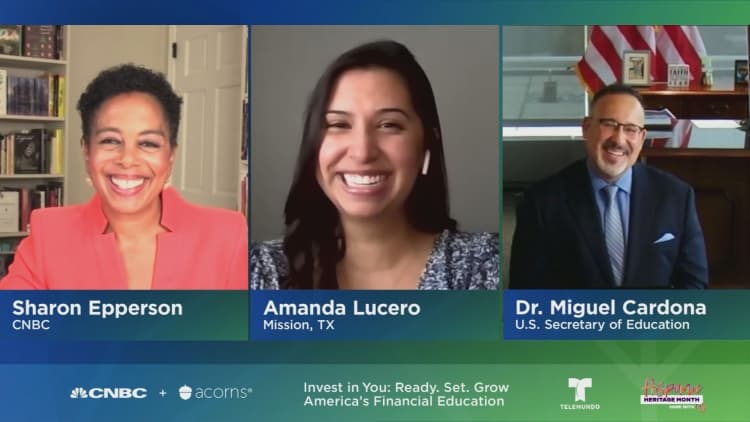
While U.S. voters are divided on many issues today, there are at least two where they can agree: They want a stronger economy and better education.
The good news for policymakers is that there is a simple way to make voters happier on both fronts: They can increase the number of states requiring K-12 financial education.
Currently, only half of the states in the U.S. require at least one course in either economics or personal finance for high-school graduation, according to data from the Council for Economic Education. That means millions of U.S. consumers are entering adulthood without basic life skills needed to manage debt, invest, save wisely and appropriately weigh economic tradeoffs over their lifetimes.
Given that consumption represents some two-thirds of the overall U.S. economy, this frequent absence of financial capability can have significant consequences. We have seen consumer decisions repeatedly play meaningful roles in economic downturns, including the housing speculation that fueled the 2008 Financial Crisis and ensuing Great Recession.
More from Personal Finance:
A pilot program aims to get students into accounting
This strategy could shave thousands off the cost of college
How to understand your financial aid offer
While financial literacy alone will not eliminate such risks, there is ample evidence that it can improve economic choices that in turn influence broader economic trends. Consider a few examples:
- Research published in the October 2020 Economics of Education Review concluded that "financial education requirements are associated with fewer defaults and higher credit scores among young adults."
- A recent report by the Financial Industry Regulatory Authority, an industry regulatory body, found that "financial literacy has significant predictive power for future financial outcomes," even after controlling for baseline financial and demographic characteristics.
- Research by Montana State University economics professors Christiana Stoddard and Carly Urban published in 2018 focused on how mandated personal finance education in high school impacted decisions around financial aid and spending entering and during college. It showed that students receiving financial education were more likely to use lower-cost sources of capital to pay for college and had lower credit-card balances and student loan amounts.
It wouldn't take much to produce a big incremental improvement in overall consumer financial well-being, given the impact of this education on key financial decisions such as college financing choices, which can mean less debt later on and a greater ability to buy a first home — all drivers of the economy.
Doing the math on financial education
Consider five states that currently do not have any graduation requirement tied to personal finance or economics coursework: Illinois, Maryland, Massachusetts, Pennsylvania and Washington. These states represent 15% of U.S. gross domestic product and 13.5% of the U.S. high-school student population. Educating every graduate in just this handful of states has the potential to have an outsized impact on the population and indirectly, the country's economy.
In the U.S., education policy is overseen by state and local governments, so financial education requirements generally need approval from state bodies or education boards. While only three states — Florida, Georgia and Michigan — last year passed new financial-literacy coursework mandates, the amount of discussion around the topic was encouraging. Thirty state legislatures proposed 117 related bills in 2022, according to the National Endowment for Financial Education.

Once mandates are in place, it's a matter of teaching the teachers. Here again, there is a large potential gain relative to the investment needed. About 4 million students will graduate high school in the U.S. this year. Assuming each high school teacher conservatively reaches about 150 students per year, we only need about 26,000 well-trained teachers to educate all those high-school seniors — that is less than 1% of all the teachers in the country.
Much of this training comes from experienced non-profits, with financial support from federal and state governments, as well as the private sector.
Of course, those teachers can often end up teaching for decades. So effective initial and ongoing training for a teacher can help not just one graduating class but an entire generation. That means millions of young adults who may be more likely to make better financial decisions.
Ensuring financial capability for every child in every state seems to have broad voter support, according to a Pew Research poll last year that listed education and the economy as top areas of focus for respondents from both parties. Policymakers should take note.
Pushing for greater financial literacy is not just a potential political win for both parties; it would also contribute to economically stronger constituents and a more robust economy over time. And it's easy to move the needle: Pass more mandates and train the teachers.
— By Rebecca Patterson, chair of the board of the Council for Economic Education and former chief investment strategist at Bridgewater Associates

